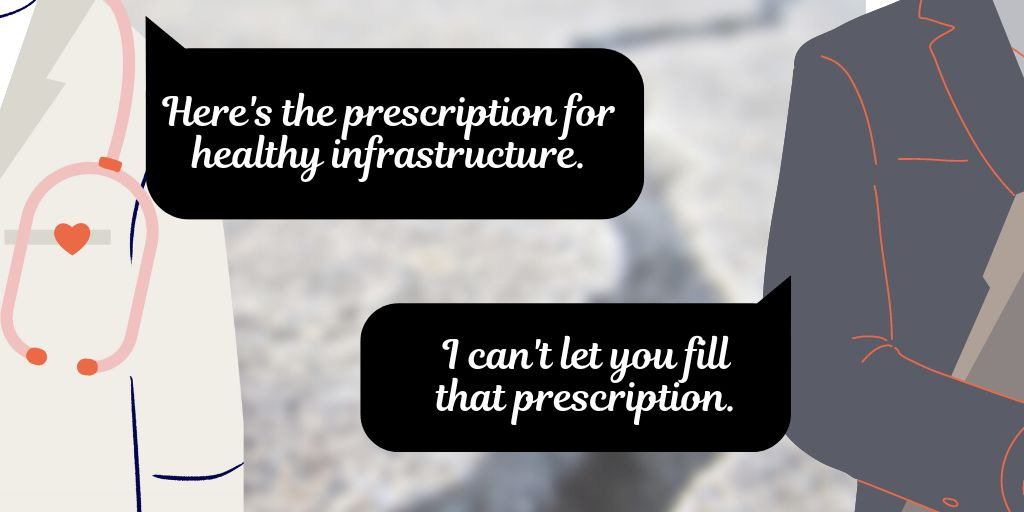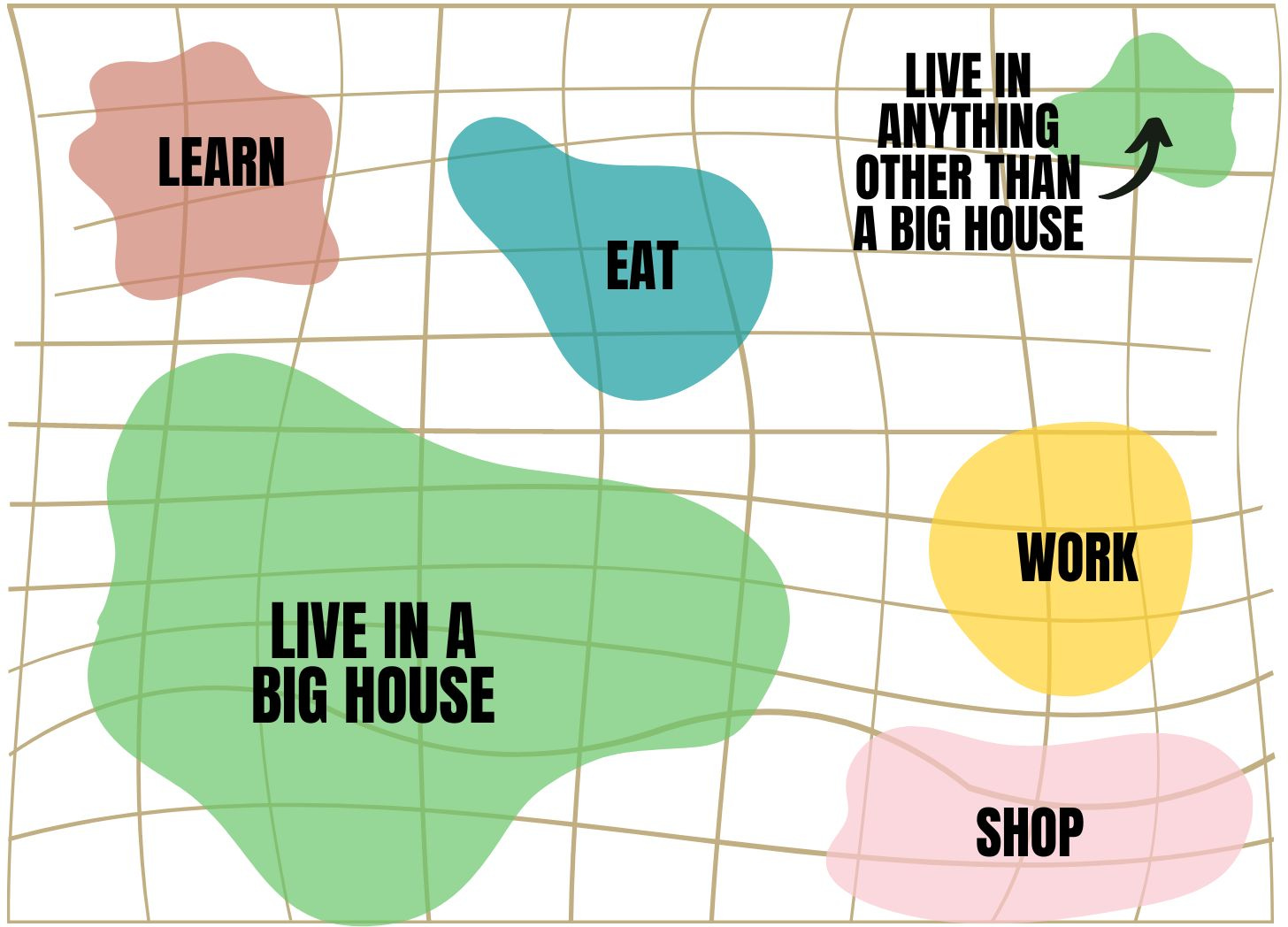Filling a prescription for healthy living
Here's an easy way to be an urbanism philanthropist.
There’s one day left in the crowdfunding campaign for my documentary about unhealthy infrastructure. As I write this, we just need $1,200 $300 in pledges to green light the project. Here’s one last post about the urgency of this film.
Our kids are at risk. Our parents and grandparents are at risk. We’re all at risk of losing our minds and bodies to the sedentary lifestyle that’s been forced on us. But our society doesn’t have to keep suffering this way. WHITE COLLAR EPIDEMIC is a documentary about the quest to fill a prescription for healthy living.
For many Americans, active living is impossible without paying for a gym membership. They live way over there, work way over here, then go to church way out there, then go shopping way over here.
Land use policy requires everything to be organized into zones, which means sitting in a car is the only viable option to get around.
Study after study shows that car-oriented living is making Americans:
⚕️ mentally unhealthy (anxiety, depression, cognitive decline, loss of creativity, feeling isolated…)
⚕️ physically unhealthy (heart disease, diabetes, obesity, cancers, respiratory sickness…)
Not long ago, people got mysteriously sick because they didn’t understand germs. Nobody washed their hands, ever. The subject of this film is on that level of importance. There are policies & practices that need to be washed away because of the constant sickness they’re introducing.
Infrastructure can be healing medicine (traditional neighborhood design) or it can be a death sentence (car-oriented development). The film will illuminate heroes and villains, provoke critical thought, and motivate people to demand healthy infrastructure.
June 29 (tomorrow!) is the last chance for you to make a pledge.
Need one more reminder about the life & death nature of unhealthy infrastructure? Read this post about one of the contributors to the documentary.
New urbanism saved my life
The following is a lightly edited transcript from one of the interviews in my unhealthy infrastructure documentary. Angela has an incredible story about the direct links between walkability and mental health.





Thanks for working on this, Andy. I worked in urban health for a decade in East Africa, and most of what we saw in clinics was directly related to people's environments. In more developed markets, it might be car culture as you point out here. In lesser ones, water and sanitation, food storage, even building materials. Everywhere, it's food systems and safe streets too. I call these the Neighborhood Vitals, and argue healthcare workers and politicians should be looking at them next to health data!